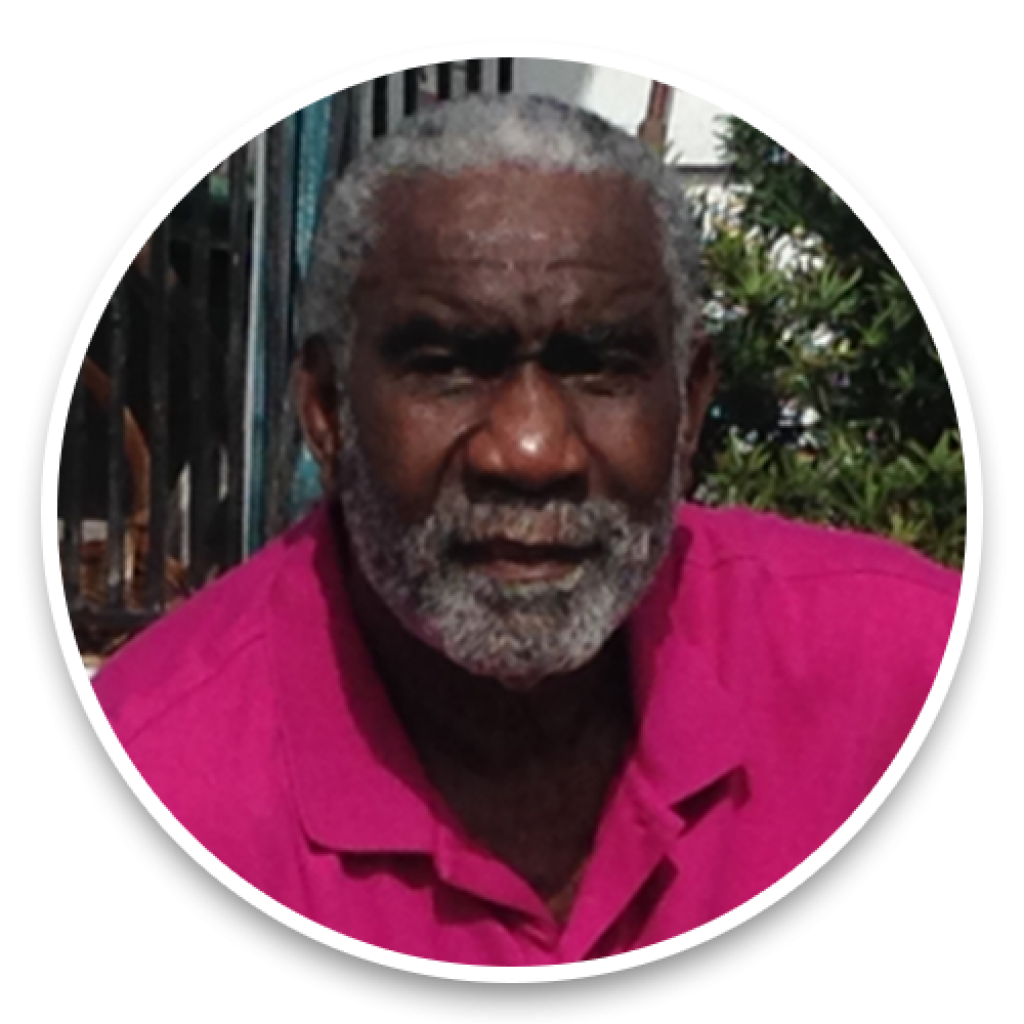
Fredd Atkins
Fredd Atkins’ story is a testament to the power that teenagers have to shake up institutional systems.
He was reared in an Augustine Quarters “shotgun shack” located behind Horn’s Grocery Store on 6th Street in Overtown. For fun, Atkins played football and baseball on sandlots and dirt courts.A bicycle tire was easily turned into a basketball rim. “Pop up” was played with part of a rubber hose, Chinaberries and a shaved palmetto limb. His aunt Ruby always kept a nice car. She participated in beach desegregation. “I was a little boy. There was always some apprehension during the desegregation process. I have been in caravans when [the police] turned us around and sent us back to Newtown. Sometimes we’d get into the water. You stayed close to the shore.
The family built a new 3-bedroom house in Newtown for $7,000 after his aunt hit the jackpot playing Bolita, a numbers game imported from Cuba. He came to Newtown in 1958 when there were few new homes. “It was a weird kind of experience because the middle class of Newtown lived in public housing. Most of the working class lived in the projects, even some teachers before they built homes.” Atkins participated in the desegregation of Sarasota schools. During the Booker School boycott, he taught at the freedom school set up at Greater Hurst Chapel A.M.E. Church. Then came integration. “Assimilation was tough. My mother used to make me go [to school]. She’d say, ‘Boy, I’m not gonna feed you if you don’t make some decent grades.’ I’d say, “This is just so rough. She said, ‘but you better go.’” At Sarasota High School, Fredd and his 1968 classmates Johnny Smith, Walter L. Gilbert, III and others boycotted, picketed, held protests, and took their complaints about inequitable treatment to Gene Pilot, the principal. Pilot established the “Pupil Interracial Council” to routinely address students’ concerns.
A Booker High School teacher Rubin Mays, reassigned to SHS during integration was Atkins’ lifesaver. “Anytime I was on the edge, I could go to his classroom and just sit there. No one would question why I was there. I could go and cool out. I’d just sit in and listen to his math class.” Sarasota High students from Newtown successfully changed the lunch menu, added African American cheerleaders to the squad and pushed school administrators to recognize African American history for a week.
As a member of the NAACP’s youth council, Atkins registered voters in high school, and attended school board meetings. Activism continued in college. He conducted research for the Miami attorney who filed a federal lawsuit against the City of Sarasota. Atkins’ trajectory was established early. He is one of Sarasota’s longest serving city commissioners, having spent 18 years in public service. He was Sarasota’s mayor three times.

